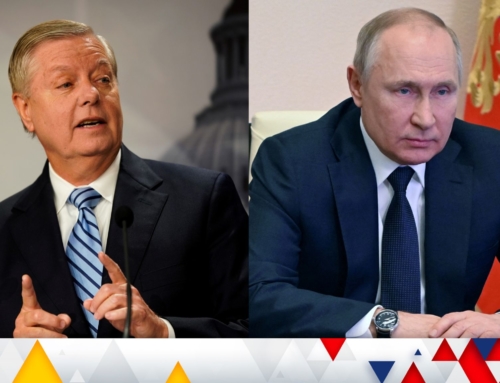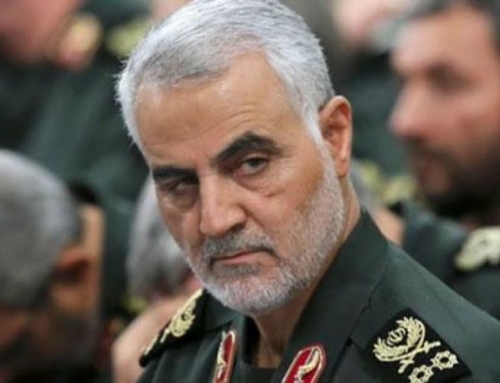President Obama recently gave a wide ranging interview to the New York Times, and his comments on Libya made my jaw hit the floor. I really try not to be political on this blog, but after hearing them, I couldn’t believe our foreign policy could be that naive. Before we get to that, though, a little recap of Libya analysis done by a peon outside the administration’s foreign policy team (me).
- The Libyan Conundrum, (14 March 2010 -Before we conducted airstrikes, and I completely agreed with the administration against the Republican Hawks):
“…And therein lies the rub. The problem with doing anything at all in Libya is that we cannot predict what the rebels truly want – or even if there is a unified rebel command. People state that getting rid of Ghadafi is the answer, but that’s only part of the equation. What comes after will be the true test, and we can’t accurately predict what that will be…Gates has been castigated recently for saying a no-fly zone would potentially cause us to enter into a third war in the Middle East. He’s ridiculed by people looking at half the equation, thinking our involvement will end when Ghadafi is gone. He knows it’s more, and that just getting Ghadafi out doesn’t mean victory… The U.S. can’t just walk away like we did in Afghanistan in the ‘80s after the Soviets left. Well, we could, but that would be foolish. Something the administration understands.”
2. The Libyan Conundrum Part II: What Now? (20 March 2010 – After airstrikes were initiated, and we went down the rabbit hole):
“…This ‘adventure’ into Libya is one of the most ill-conceived, poorly coordinated efforts that has ever come out of the United Nations, a body famous for ill-conceived, poorly-coordinated policy. Especially when other leaders in the region are committing the same types of atrocities, such as Saleh, the president of Yemen, who just killed 56 civilians with sniper fire. Are we going to attack Yemen next? While France and others are screaming for Ghadafi’s removal, I haven’t heard a single statement about whom or what sort of government would replace him. Does anyone have any idea at all? Does anyone care?
One thing’s for sure – I was wrong about the Obama administration understanding we can’t simply walk away after causing Ghadafi’s fall. Apparently we can – and will.”
3. The Libyan Conundrum Part III: Marx Brothers Foreign Policy (22 April 2010 – Airstrikes ongoing, Ghadaffi is doomed).
“Am I saying we should take him out? No, actually I’m not. Primarily, because I’m worried about what ‘leadership’ would replace him. I’d like to think that we have some sort of secret plan in place behind-the-scenes – and that this had been thought through before committing to action. Maybe that we had found some Libyan “Thomas Jefferson” to take over. After seeing this play out, I’m fairly sure we have no idea whether the rebels are extremists or not, and we are now blindly following a path based not on helping Libya, but simply protecting the damage to our own reputation, regardless of the cost to Libyan civilians. We’re simply throwing good money after bad so we don’t look stupid. Even General Ham, Commander of Africa Command and the person who oversaw the initial operations of Odyssey Dawn, told congress he was against arming the rebels because we don’t know enough about their intentions or where the weapons would end up. What does that say about our policy? Why is removing Ghadafi a goal when we’re unwilling to trust the very people who will replace him? What on earth is the United States doing?”
4. The Libyan Conundrum Part IV: How Do You Like Me Now? (13 September 2012 – two days after Benghazi)
“If anything, Libya should remind us that there is never a conflict “won on the cheap”, and that victory is not achieved the moment the opposing side capitulates. Believing such folly inevitably leads to what we now have in Libya, and a president giving a hollow promise to bring the killers to justice. ”
5. President Obama on the current Libyan chaos, in an interview conducted with Thomas Friedman of the New York Times on 8 August 2014:
“I think we [and] our European partners underestimated the need to come in full force if you’re going to do this. Then it’s the day after Qaddafi is gone, when everybody is feeling good and everybody is holding up posters saying, ‘Thank you, America.’ At that moment, there has to be a much more aggressive effort to rebuild societies that didn’t have any civic traditions. … So that’s a lesson that I now apply every time I ask the question, ‘Should we intervene, militarily? Do we have an answer [for] the day after?’ ”
When I heard that statement, I was astounded. Literally flabbergasted. This was from the President of the United States? Really? He had to wreck a country, with all the follow on death and destruction, to learn that lesson? Well, to his credit I guess he DID learn. It’s a shame that his entire foreign policy team had to turn a sovereign nation into a terrorist mecca for that little nugget of wisdom, though. They could have simply talked to ANYONE who’s had a tour in Iraq. Which is the ultimate irony: Obama was against the Bush administration’s attempt to reconstruct Iraq after demolishing its institutions, and yet he now realizes that that’s exactly what was needed in Libya. AFTER he pulled our troops out of Iraq. In his words from the clip above, “…They had a despot for forty years in place…There were no traditions to build on….”
Huh, sounds vaguely familiar…did you check the Iraq tapes on CNN before going in? Did anyone in your administration? An administration picture should be next to the word “Irony” in the next dictionary.
Or the word stupidity.










So do you suppose he’s being honest with the “Gee, golly. We didn’t know”. Or is there more to it. Seriously. Can they be that bad?
Apologies as well. This also went into spam and I just saw it. I think it’s a combination of “Gee, had no idea”, not wanting to look reality in the face, and just not really caring to find out. He looked like a strong leader, deposing despots, and didn’t want to deal with the aftermath. Which is sad. People hammer G.W. Bush for Iraq, and yeah, going in was an absolute mistake, but at least he understood the stakes of just fleeing. The reason Americans can find Iraq on a map is precisely because of what Obama said he failed to do in Libya – G.W. Bush stayed behind to stabilize the mess he’d created. Most people in the US have no idea how bad Libya is, and that’s because we turned and ran as soon as we were done. No CNN, no American death, nobody cares. Libya is a cauldron of violence that will eventually affect our interests, and it’s embarrassing that the US foreign policy team in charge – after close to a DECADE in Iraq – had no idea it would turn out as bad as it did. And it’s bad. A yardstick for measure: We pulled the flag down and fled our embassy in Tripoli because the fighting is raging like a forest fire throughout the country. We still have an embassy in Iraq. In fact, the largest US embassy in the world.
Such a shame. http://www.politico.com/story/2014/08/thomas-friedman-obama-mideast-policy-109904.html
Apologies. This went into spam and I just saw it.
Agree with you 100%. “Stupidity”…. IS the word and sadly “stupidity” can’t be fixed. Kudos, Mr. Taylor for your insight and post on the Libyan conundrum. Sadly, we don’t seem to learn from history or lessons from the past. The March, 2011, Executive Order by President Obama to spend a BILLION + dollars and send in his JSOC ops to train these “so called” groups of “rebel freedom fighters” with Al Queda & Al Nusra involved, was a disaster. The hypocrisy in which the U.S. supports, arms and set up these “dictators” and turn around and decide they are the “axis of evil” ….let’s take them out, is astounding to me. It’s been going on for decades..supporting rebels…coups and “ops” to replace President/PM/Dicators. Look at all the Latin American countries and Asian countries. Look at Chile, (Allende), Panama 1989 (Noreiga), Haiti,
The list of countries the U.S. has interfered in is a long list and getting longer. I’m old now and hope smarter and wiser to what the MSMedia reports and what is really going on. .
The President recent, removal of PM Al-Milaki for a new U.S. approval/replacement of “another” PM and arming of the Kurds, and recent strikes on ISIS…is only going to get the U.S. into another “quagmire.” There is NOT an easy solution. As Colin Powell told G. W. Bush and Dick Cheney about attacking Iraq. ‘You will own it.” The Iraq war of mass deception, with nearly 5,000 deaths of American soldiers and thousands more injured, and the innocent people of Iraq killed and injured and BILLIONS of dollars wasted, stolen and misused is disgusting! The same goes for Libya, then the “BS” we’re fed about what group of the “GOOD” rebels to support in Syria to oust Assad, the American people are slowly waking up, and with the internet and social media, Americans are finding out the facts and realize we’ve been lied to for decades.
My main worry and concern, not for me, I’m older than dirt, but for my child and future grand children and the next generation…. is CHINA. They have “nukes,” and are building up their military over the past decade. We owe China trillions of dollars, (the U.S. value based PETRO dollar), our U.S. manufacturing and technology Inc.’s moving to China and their buying up U.S. corporations and other Inc.’s. Plus there deals with other countries in the Middle East, Asia and Africa, and buying up foreign Inc.’s. Eventually, China is not going to accept ‘The U.S. Dollar,” for payment on our loans and will start demanding parts of our infrastructure as collateral. Just the recent BRIC agreement with China, Russia, India and Brazil ….will affect the value of the U.S. (Petro) dollar…and the IMF/World Bank/Federal Reserve. Won’t even go into the U.S. involvement with “approving” the new leader in Ukraine..or who these rebels actually are and what the sanctions and bull excrement we are being fed….again..
Unfortunately, most Americans are more interested in watching “reality shows” and aren’t paying attention to what is going on.
Enjoy reading your novels and just finished reading “The Widow’s Strike.” You, Brad Thor and Vince Flynn novels are more “factual” …than “fiction” in that you all tell your readers facts of technology and history that is helping explain what is going on and to wake up!. Thanks for reading my long message and look forward to reading your opinions on your blog and your other novels. Respectfully, Mary Ann
Thanks for your 21 years of serving our country.
And now the Khorasan Group. Do we really feel like we need an excuse to try to clean up the mess we made by walking away from Iraq? Obama promised to pull the troops out of Iraq as part of his 2008 campaign. I knew then what the fallout would be. My wife is Iraqi Christian, her family has been in the states since the mid-80s, but they have family there. I had 3 brothers-in-law work as civilian contractors to the US armed services in the years leading up to and following the withdrawal. Much as I understand completely the general desire to bring our boys home, I disagreed then and condemn the decision now.
We’ll have to put boots on the ground. Now or later, it’s going to come down to that. My guess would be that Obama will try to stall that off until the end of his term, but I don’t know how he’ll do that and save any kind of face he may have had. If we trickle in like we did in Southeast Asia, we’re back in the stuff again. All in or all out. We’ve done enough that this thing will not go away on its own. Which begs the question once again, why exactly did Saddam Hussein have to fall at just that moment? Couldn’t we have found a better way?
I’m afraid this thing will escalate as we (the U.S. Government) create more animosity and build greater resistance by the wholesale bombing of extremists. We did exactly the same thing in Vietnam. Look how that worked out. The Viet Cong grew stronger the harder we punished them. This isn’t rocket science. There may be different ideologies at the root of each of these conflicts, but they have much more in common in regards to our policies. The bottom line is there is no consensus in the Middle East. The enemy of my enemy is my friend… today. That’s the problem. They’ll all tell you whatever they think you need to hear to secure the help they want, then turn around and, once the common enemy has been destroyed, stick a knife between your shoulder blades.
The Iraqi people are suffering immensely. They didn’t want us to leave. Their government did. Why? Because they wanted to get on with the work of stuffing their pockets. Unless we plan to occupy the world, we need to figure out a better approach.
The one thing we overlook is that Islamic fundamentalists don’t just want to be left alone, they want us gone. So this thing will never just be a question of quelling the current uprising. It’ll never be enough to say we set up a stable government and now they’re on their own. They don’t play by the same rules. And until our leaders realize that and act appropriately to the threat, we’re in trouble. These guys are patient and deadly. We need to hardline this now. We did a lot of stuff that would be seen as inhumane and indefensible in World War II: media blackouts, internment, travel restrictions, carpet and fire bombing, among others. Terrible as it is to admit it, we did it. But rather than shame, we need to remember: we won.
One admission I must make is that I don’t have all the facts. I’m basing my opinions largely on the current activity and what we’ve seen historically. I’m absolutely certain that the administration knows more than I do and that my opinions, as a result, might be miles off-base. I just don’t think they are.
Is it too simplistic to hope that somewhere right now there’s a Pike Logan, a Scot Harvath, and a Mitch Rapp planning out a personal visit to a few of the behind the scenes “bad actors” connected to these radical organizations? For our sake (and our children’s), I hope so.